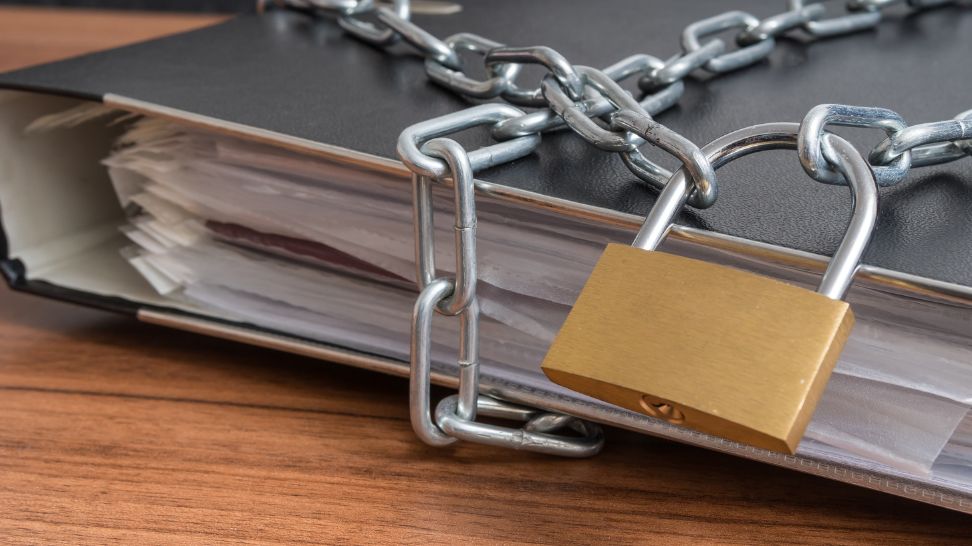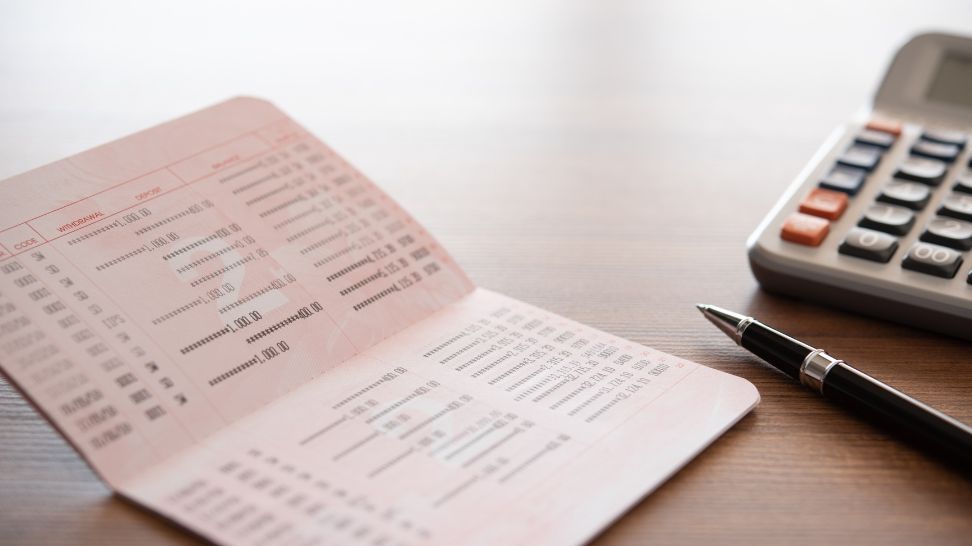Switzerland is the world’s primary hub for offshore accounts because of its extensive history of neutrality, economic stability, and banking privacy.
Films and television shows have portrayed Swiss banks as the go-to hiding spot for ill-gotten funds. However, these days, Switzerland has strict anti-money laundering laws and tax agreements that have made the country’s banks much more difficult to use for illegal activities.
Are Swiss Accounts Legal?
Find out if it’s legal for US citizens to open Swiss bank accounts in this video by Blake Harris!
The value of Swiss bank accounts for U.S. citizens lies in the unmatched privacy and security that Switzerland’s banks provide, the diverse investment opportunities, and the superior asset protection qualities.
This guide to opening a Swiss bank account is for U.S. citizens who want to secure the financial future of their families by holding their assets in one of the most secure banking systems in the world. We’ll discuss eligibility and documentation requirements, tax obligations, and Swiss bank account types.
If you decide to open a Swiss bank account to shelter your assets from economic instability, lawsuits, and currency devaluation, our asset protection team at Blake Harris Law can assist you with the process to make it as easy as possible to safeguard your wealth.
Can U.S. Citizens Legally Open Swiss Bank Accounts?
Yes, it’s legal for U.S. citizens to open a bank account in Switzerland. However, setting up a Swiss bank account requires a identity verification and you might have to provide various official documents that serve as proof of address and income.
Banks that provide international banking services have fees comparable to U.S. banks.
Steps To Take When Opening a Swiss Bank Account as a U.S. Citizen
Because of Switzerland’s strict security regulations, the bank account opening process requires proper due diligence to ensure the good character of their customers.
Many Swiss banks allow U.S. citizens complete the entire account opening process online.
These are the basic steps for opening a Swiss bank account as a U.S. citizen:
Research and Choose a Swiss Bank
Your first step is deciding which Swiss bank is right for you, depending on your financial needs and goals.
Switzerland has several types of banks, including the following:
- Cantonal bank: a government-owned bank for residents of the canton where the bank is located.
- Retail bank: a bank for personal banking services like checking and savings accounts, mortgages, credit cards, etc.
- International bank: an institution that caters to foreign clients.
- Investment bank: private banks that are usually exclusive to high-net-worth individuals who want to diversify their assets.
Some banks make the account opening process as easy as possible for non-residents, including U.S. citizens, while others have strict criteria and long processes for foreign account holders.
Before applying to a particular bank, you should consider the available international services, online banking access privileges, minimum balances, and monthly fees.
Understand the Eligibility Criteria
Swiss banks are famous for their unmatched security.
To open a Swiss bank account, the general requirements for non-residents include the following:
- Must be at least 18 years old
- Must reside in a country that is eligible for Swiss banking (the U.S. is eligible)
- No evidence of a criminal background or illegal activities (e.g., money laundering)
Provide Required Documentation
The documents you must hand over depend on the institution you opened your account with. For example, some Swiss banks are extra critical of where your assets come from and require extensive documentation of their origins.
The typical paperwork requirements for opening a Swiss bank account are as follows:
- Application forms
- A valid, government-issued ID (e.g., a U.S. passport)
- Proof of income sources
- Proof of address
Fulfill KYC Requirements
Due to know-your-customer (KYC) requirements in Switzerland, Swiss banks must verify the following personal details of non-residents:
- Name
- Date of birth
- Address
- Nationality
If you’re applying online, you must provide a certified copy of your ID, such as a passport or driver’s license, and confirmation of your address.
Choose Account Type
The types of Swiss bank accounts you can open depend on two main things: whether you’re an individual, Trust, or a company, and whether you’re a Swiss resident.
As a U.S. citizen residing in the U.S., your options could include the following:
- Personal account: a standard account for salary deposits and payments
- Savings account: an account for saving money and gaining interest
- Investment account: an account for holding investment securities and growing your assets
- Corporate account: a company-held account that has a stricter account opening process
Sign Account Opening Forms
Once approved, you will need to sign accounting opening forms. This process can be completed online and by mail.
Account Approval and Funding
The account opening requirements are very strict in Switzerland, so you can expect a thorough verification process. Even if you meet the eligibility criteria, many Swiss banks require hefty minimum deposits from non-residents, which could exceed a million U.S. dollars. Blake Harris Law has relationships with certain banks which allows our clients to open an account for as little as $250,000.
What Are the Eligibility Criteria for U.S. Citizens To Open a Swiss Bank Account?
To open a Swiss bank account as a U.S. citizen, you’ll typically need to provide your government-issued ID, proof of address, and a minimum deposit. You might need to provide other official documents, depending on the bank and type of account.
Advantages of Opening a Swiss Bank Account as a U.S. Citizen
Switzerland is the leading financial center for storing offshore assets, primarily because of the exceptional safety and privacy Swiss banks offer, even for foreign clients.
The following are just a few of the advantages U.S. citizens gain by opening a Swiss bank account:
Privacy and Confidentiality
Switzerland has rigid bank privacy laws, meaning that your account information will remain private unless the bank must disclose it because of evidence of wrongdoing or other legal grounds.
Even standard Swiss bank accounts offer enhanced privacy compared to banking in the U.S., and you can add another layer of confidentiality by opening your account with an LLC or offshore corporation.
Asset Protection and Diversification
Swiss banks provide superior anonymity, stability, and protection for U.S. citizens. This is because Switzerland’s laws require banks to have plenty of capital, provide insurance, and keep client information confidential.
Opening a Swiss investment account allows you to diversify your assets, helping you avoid the risk of holding all your eggs in one basket.
Stable Economy
Switzerland has a very stable economy, with the Swiss franc being one of the most stable currencies in the world. The country has considerably lower inflation rates than other countries, making it a top choice for U.S. entrepreneurs, high-net-worth individuals, companies, etc., who want to grow their wealth in a strong economy.
Which Swiss Bank Is Best for U.S. Citizens?
While the popular banks in Switzerland will open accounts for U.S. citizens, you might encounter complicated processes and vague pricing depending on who you bank with. You should look for banks that offer upfront pricing information and streamline the account opening process for international clients.
What Are the Reporting Requirements to U.S. Tax Authorities for Swiss Bank Account Holders?
U.S. laws and international agreements, including the Foreign Account Tax Compliance Act (FATCA) and the Automatic Exchange of Information (AEOI), make U.S. citizens and Swiss banks responsible for reporting specific information to the Internal Revenue Service (IRS).
The IRS’s required Report of Foreign Bank and Financial Accounts (FBAR) asks for details on foreign bank accounts held by U.S. citizens, including:
- Account holder’s name
- Name and address of the Swiss bank
- Bank account number
- Type of bank account
- Maximum account value that year
Investment Options Available for U.S. Citizens Through Swiss Bank Accounts
With a Swiss bank account, you have numerous investment opportunities to help you diversify your portfolio, including:
- Real estate
- Gold and silver
- Stocks
- Bonds
- Cryptocurrency
- ETFs
Is There a Minimum Required Deposit To Open a Swiss Bank Account?
Yes, many Swiss banks have a minimum required deposit, but the amount depends on which bank you open an account with. Some banks might also have minimum balance requirements, meaning the bank might close your account if the balance goes below a certain amount.
What Is the Required Minimum Deposit?
The required minimum deposit depends on the type of account and the bank. Swiss accounts can have minimum deposit amounts that range from $250,000 to over a million U.S. dollars.
Consult With an Asset Protection Lawyer at Blake Harris Law
If you want to safeguard your hard-earned assets in a highly secure, private Swiss bank account, our experienced team at Blake Harris Law can guide you through the complex process. We help families nationwide secure their financial stability and legacy.
Call us today or send us a message to talk to an attorney with long-time experience in asset protection and opening Swiss bank accounts.






